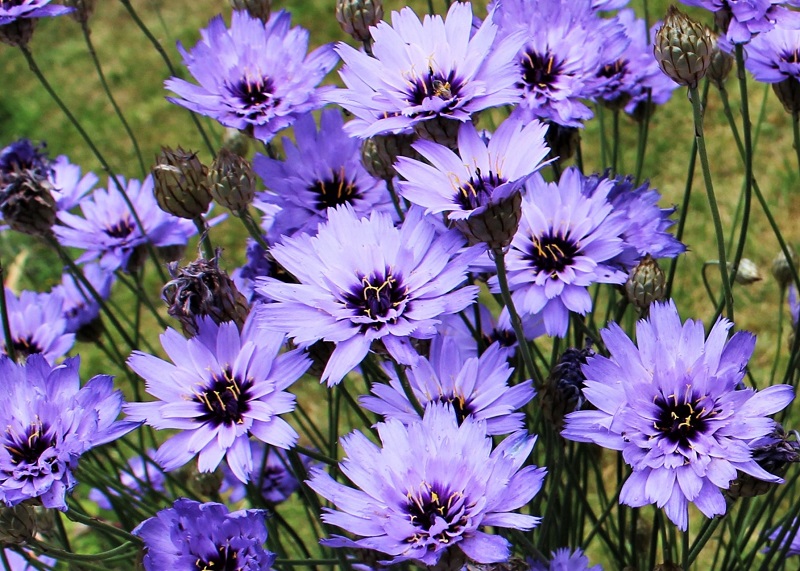JULY
Watering and dead-heading are two of the most important jobs around the garden this month, to keep plants healthy and vibrant.
On hot days damping down the greenhouse floor helps reduce the temperature and increases humidity, encouraging plant growth and mitigating against red spider mite that prefers it hot & dry and is otherwise very difficult to control.
Click on any picture or text link for more info
Divide clumps of bearded iris,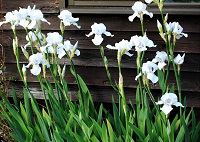
if you didn’t do it immediately after flowering last month.
Dividing every 3 – 5 years really does improve flowering.
Pruning of plum, cherry, apricot & peach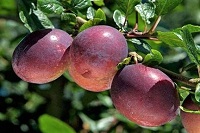
trees should be carried out as soon as the fruit has been harvested, in dry weather to minimise the risk of silver leaf infection.
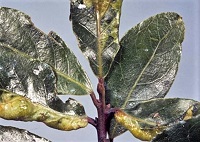 Bay sucker damage produces thickened and curled leaf margins.
Scale insects can also affect bays at this time of year.
Bay sucker damage produces thickened and curled leaf margins.
Scale insects can also affect bays at this time of year.
By mid-summer some lawns may be heavily infested by ants.
Brushing out the nests on a dry day is a good method of control, and should be done prior to mowing.
Feed roses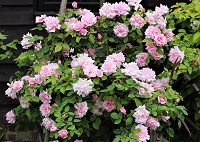 after their first flush of flowers.
after their first flush of flowers.
Continue to dead-head repeat-flowering roses to keep them flowering strongly.
For varieties that flower only once, the spent blooms can be left to develop into hips.
Are your lupins looking rather sad?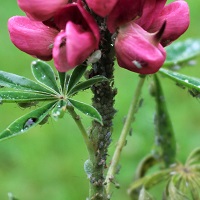 Look closely and you may well find colonies of the Lupin aphid, which can quickly sap the plant and is becoming more widespread.
Look closely and you may well find colonies of the Lupin aphid, which can quickly sap the plant and is becoming more widespread.
Neat circular areas removed from the edges 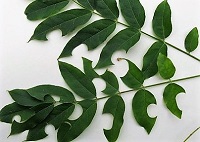 of rose and other leaves are tell-tale signs of leaf-cutting bees – these fascinating creatures can be tolerated since damage is rarely severe.
of rose and other leaves are tell-tale signs of leaf-cutting bees – these fascinating creatures can be tolerated since damage is rarely severe.
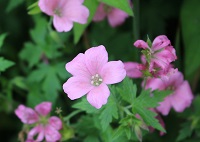 Cut back hardy geraniums and delphiniums after the first flush of flowers to encourage a second flowering later in the season. Feed and mulch them after cutting them back.
Cut back hardy geraniums and delphiniums after the first flush of flowers to encourage a second flowering later in the season. Feed and mulch them after cutting them back.
In dry weather, powdery mildew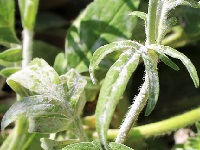 can threaten susceptible plants, e.g. clematis, centaurea, monarda, scabious, knautia and honeysuckle; however, regular watering can help ward it off.
can threaten susceptible plants, e.g. clematis, centaurea, monarda, scabious, knautia and honeysuckle; however, regular watering can help ward it off.
Make sure indoor plants have enough shade and ventilation to prevent scorch damage and water them adequately.
Many benefit from being placed outside for the summer, which also lessens some pest and disease problems, such as red spider mite and scale insects.
Plants with a carpet-like growth habit, such as some alpines, can become patchy, with central areas dying off.
These patches can be in-filled with gritty compost, to encourage re-growth.
Also, check whether any of the items from June still need attention.
Wildlife in the garden
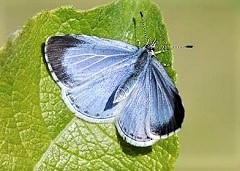
Big Butterfly Count
12th July – 4th August
just 15 mins of your time
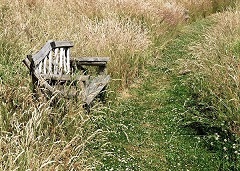
Stop Mowing for Nature
and see the benefits for
wildlife (and yourself)
Make the most of it,
even when its very dry
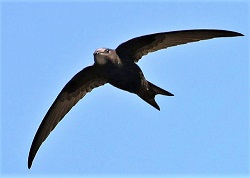
Five ways to help Swifts
Why do swifts need help?
Click any day below for a more detailed weather forecast, which also looks further ahead

